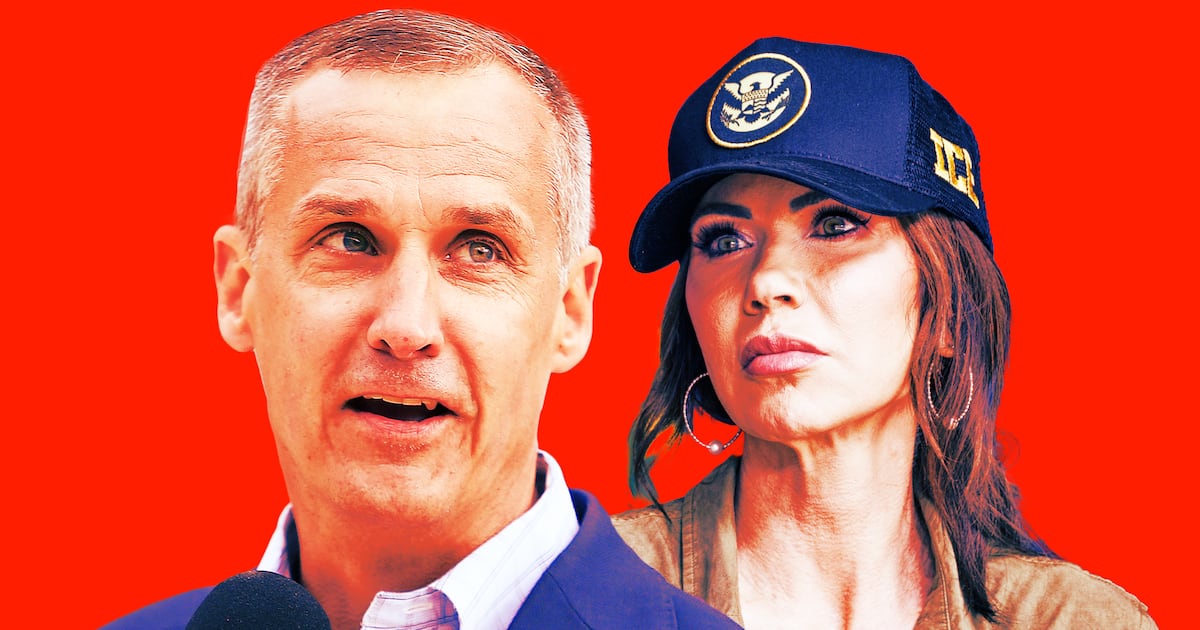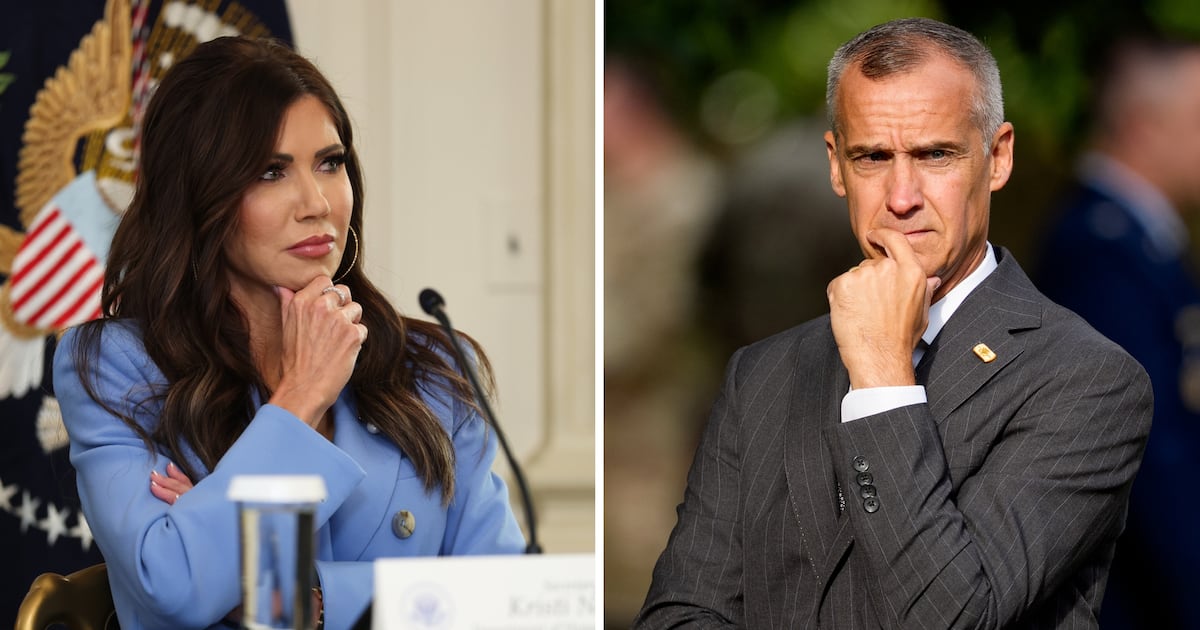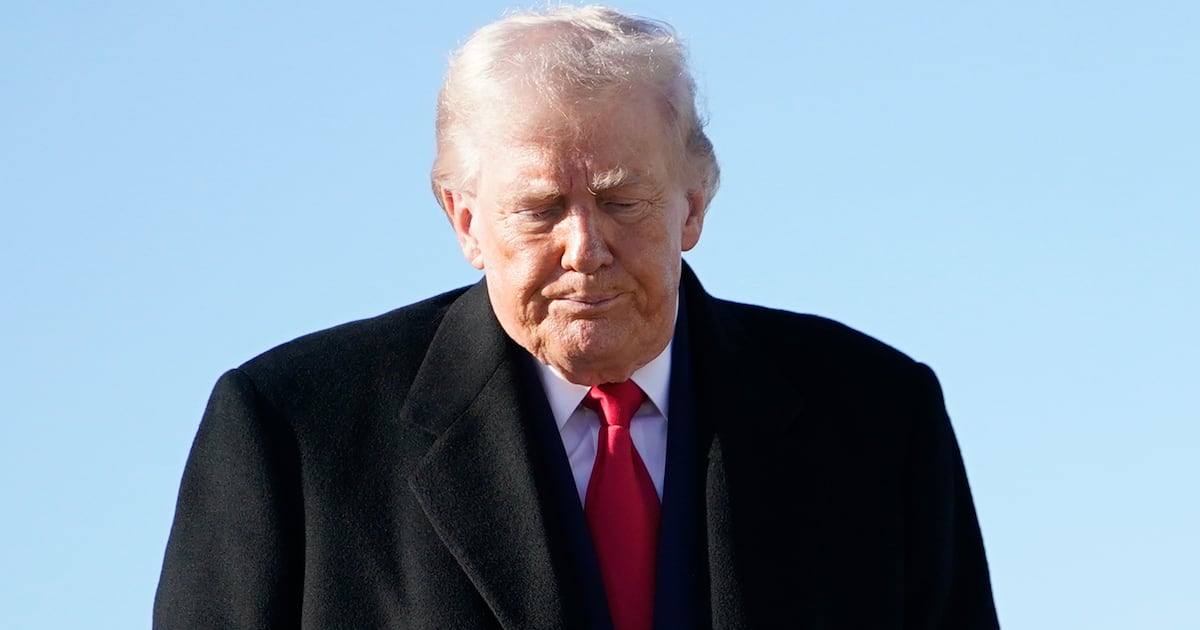Not since Godzilla faced off against Mothra has a battle wreaked such ugly consequences on innocent bystanders. Two behemoths behaving badly—Time Warner Cable and CBS Corp.—are fighting over filthy lucre and straining to convince millions of blameless citizens, i.e., the ones getting screwed, that it’s the other guy’s fault.

The CBS network has now been switched off for millions of viewers, and the propaganda war would make George Orwell dizzy. Time Warner Cable claims that CBS is demanding a 600 percent overcharge in transmission fees in major markets (a figure denied by CBS and which TWC refuses publicly to back up) and, in a mass email, assures subscribers that the current unpleasantness is actually all in the service of “stand[ing] by our customers and do[ing] what it takes to fight [CBS’s] unreasonable demands.”
Never mind that Time Warner Cable is a $33.5 billion enterprise that in the second quarter of 2013 posted $481 million in earnings, exceeding Wall Street’s expectations and sending the stock soaring. Yet a couple of days ago, TWC chief executive Glenn Britt argued that “if we paid CBS what they are asking, the next broadcaster or programmer would ask us—and others like FiOS, AT&T and DirecTV—for even higher prices next time. Cable TV bills would skyrocket. You’d be mad. We’d be mad. It won’t end well for anyone.”
CBS, a similar-sized company whose second-quarter earnings exploded in a record $476 million (and whose CEO, Leslie Moonves, made $62.2 million last year—more than three times Britt’s compensation package), is also apparently suffering terrible abuse. “CBS programs are among the most popular in the industry, and yet there are many cable networks—with considerably less viewership—that receive more money for their programming from Time Warner Cable than we do,” Moonves complained in a recent manifesto. “That means networks that are watched by audiences much smaller than that of our lowest-rated shows are receiving much more compensation than the network that provides viewers with The NFL on CBS, The Big Bang Theory, NCIS and 60 Minutes. Clearly something is out of whack.”
Indeed it is. On Friday at 5 p.m. Eastern Time, after weeks of fruitless squabbling over the undisclosed fee hike that CBS wants from TWC (published estimates suggest that the network is actually demanding an upcharge, within two to three years, from around $1 per subscriber per month to as much as $2 per subscriber monthly), the cable company stopped carrying the network’s owned-and-operated television stations in New York City, Los Angeles, Chicago, Boston, Dallas, and three other markets affecting a total of 3 million cable subscribers. This came after a furtive 20-minute blackout of CBS programming on Monday night, but TWC quickly lost its nerve and agreed to continue talking.

But with negotiations at stalemate—and, according to a statement released by CBS on Sunday, nonexistent (“There are no negotiations taking place at this time between CBS and Time Warner Cable”)—TWC also dropped Showtime, TMC, FLIX, and Smithsonian in those markets, not because these cable channels are central to the dispute—they aren’t—but simply because they happen to be subsidiaries of CBS. The network retaliated by blocking TWC subscribers from online access to full episodes of CBS programming—hardly a way of generating consumer goodwill.
Instead, after clicking on a CBS show, disappointed viewers are sent to a negative ad in which a bombastic male narrator, accompanied by loud bangs, accuses TWC of all manner of perfidy (mainly blotting out various highly rated prime-time shows from its channel lineup) and urges disgruntled viewers to “Say no to Time Warner Cable!,” dial TWC’s toll-free customer line, and “tell them you want CBS back!” It’s the video equivalent of inciting angry villagers to storm the castle with pitchforks and torches.
That particular CBS attack ad, along with others scorching TWC, was made in-house by marketing president “George Schweitzer’s talented marketing team,” a network flack proudly informed me. Meanwhile, TWC has farmed out its campaign-style juggernaut against CBS to a Washington-based corporate consulting firm called “Purple Strategies”—presumably a reference to their red-and-blue-state bipartisanship, not their prose—under the supervision of managing partner Bruce Haynes, a veteran of South Carolina Republican politics, traditionally among the most vicious in the nation.
“CBS is giving New York a big black eye,” begins a TWC commercial featuring a female voice dripping with disgust that makes a giant to-do out of the arguable “600 percent more” figure. “CBS is driving up the price you pay for TV, and it’s time to draw the line.” (In fact, while TWC’s message machine continues to press the “600 percent” argument, the company’s top communications executive, senior vice president Ellen East, conceded to me on Sunday that the percentage no longer applies. “That was their original plan,” she said. “The economics have advanced since then.” But just like the CBS spin doctors, East won’t discuss specific numbers.)
Meanwhile, TWC has produced a three-minute in-house video documenting the awful burdens of blacking out stations from its programming lineup. “It was a lot of stress—every hour we were getting new updates,” a manager complains on camera. “These disruptions are becoming more of a threat as programmers and broadcasters demand higher fees from TWC and its customers for the rights to carry their signal,” intones Jay Gormley, one of East’s employees, who hosts the video. “I think it’s an absolute, necessary evil, unfortunately,” says another TWC exec. “We really need to make sure that we’re managing costs for our customers. Nobody wants to pay 600 percent more”—that funny figure again—“for a cup of coffee. We don’t want our customers to pay more.”
The problem for TWC, of course, is that it’s waging this message war at a significant disadvantage. The public interacts with CBS—greedy though it might be, and possibly taking its cue from the People’s Republic of China when it comes to blocking Internet access—as a free provider of popular entertainment, sports, and news programming. What could be bad? On the other hand, customers of TWC (and other cable distributors) frequently experience malfunctioning equipment, long waits on the phone, unresponsive or rude service representatives, and ever-inflating monthly charges. Former Disney studios executive Marty Kaplan points out that cable bills have nearly tripled over the past decade.
So it’s hardly surprising that on TWC’s own sanctioned blog, the customer commentary runs from withering to downright disgusted. “If you don’t offer CBS on my TWC account, I will be deciding on another company soon,” one typical commenter vowed. “So who exactly ‘forced’ you to remove CBS,” demanded another. “Both you and CBS are acted [sic] like spoiled children and we, the consumers, are being held hostage.” Another commenter unleashed a primal scream: “I’m out. This is the final straw on [a] long list of dissatisfaction over TWC. Starting Monday I will start the process of changing to FIOS. In your ads and letters you talk about outrageous charges. You need to look at my bill … [N]o one is standing up for me.”
Ellen East, TWC’s communications czar, told me that typically the company will conduct polling and focus groups to see how various controversies and strategies are playing in the world at large, but nobody needs a pollster to conclude that the present nastiness is tarnishing both CBS and TWC. “I don’t disagree with that,” she said.






